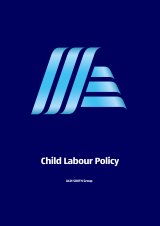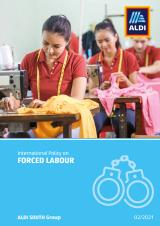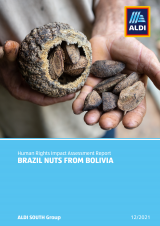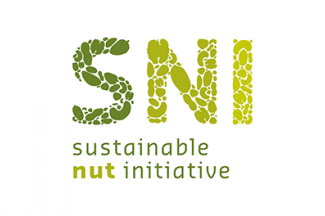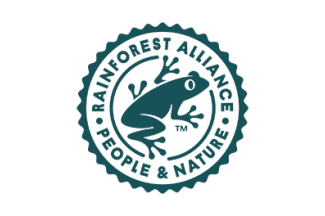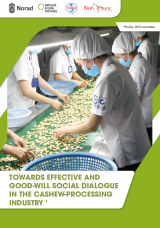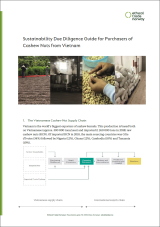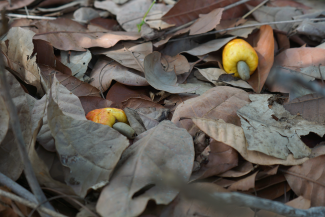
Nuts
Our Approach
Each nut type and its value chain is unique and comes with its own social and environmental challenges. Nut origins and production systems vary significantly and range from the wild collection from pristine rainforests in the Amazon (Brazil nuts), over smallholder farming in Türkiye (hazelnuts) and West Africa (cashews), to industrial plantations in California (almonds).
The ALDI SOUTH Group has identified nut supply chains as a high-priority focus area. There are eleven nut types sold in the ALDI SOUTH Group’s countries, with Brazil nuts, cashews and hazelnuts being of particular importance. We are committed to fostering fair working conditions and environmentally friendly production in the cultivation and processing of nuts. We will continue to increase our efforts in ensuring transparency and traceability throughout our nut supply chains and support our business partners to improve their corporate responsibility performance.
Our Actions
Nut Strategy
In line with our CR Roadmap to our Vision 2030, we have defined a long-term strategy for our nut supply chains to increase traceability of raw materials as well as improve the livelihoods and working conditions for workers along our high-priority supply chains.
We are working collaboratively with our suppliers, multi-stakeholder initiatives, certification bodies and industry experts to strengthen our requirements for our nut products, focusing on addressing issues related to, for example, sustainability management, transparency and traceability, human rights and food safety.
By establishing an impact-led approach and partnering for change, we strive to become a driving force for collaboration and sector transformation.
Transparency & Traceability
Supply chain transparency is the foundation for all our sustainability measures. However, nut supply chains are highly complex and the production process for each nut type can vary significantly. For example, global cashew supply chains can often span from cultivation in West and East African countries to processing in Vietnam. This not only makes it challenging to achieve traceability and transparency in general, but can also hinder our efforts to increase our stakeholder engagement and capacity building within our supply chains.
Together with our business partners and other industry actors, we are working towards increased transparency through targeted supplier interviews, participation in relevant multi-stakeholder initiatives, projects on the ground, and crop-specific human rights impact assessments. This helps us to ensure compliance with our requirements in the cultivation and processing of nuts for our products.
Nut traceability enquiry
In 2022, we successfully completed our nut traceability review for the second time to help us understand where our nut products come from and the techniques with which they are grown and processed. With the help from our suppliers, we were able to retrieve data on almost 85% of our buying volume for our nut snacking products, revealing key insights of each nut type’s individual supply chain. We are aware that without this knowledge, we cannot ensure compliance with our requirements, analyse risks, or implement projects on the ground.
ALDI’s main sourcing countries for nuts
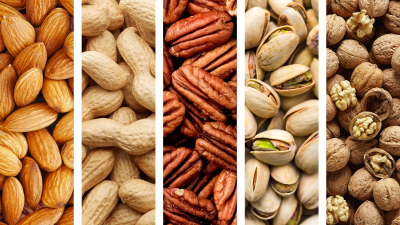
USA
Almonds, Peanuts, Pecans, Pistachios, Walnuts
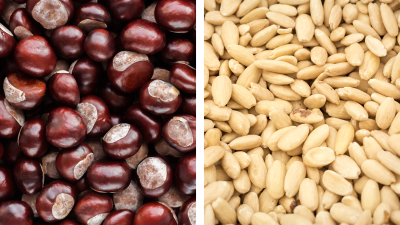
China
Chestnuts, Pine nuts

Vietnam
Cashews
Our recent traceability enquiry confirmed that Vietnam is the main processing hub (i.e. cracking) for our cashew products while around 50% of our raw cashew nuts are grown in West and East Africa.

West & East Africa
Raw Cashew Nuts
Our recent traceability enquiry confirmed that Vietnam is the main processing hub (i.e. cracking) for our cashew products while around 50% of our raw cashew nuts are grown in West and East Africa.

Australia
Macadamia

Bolivia
Brazil nuts

Turkey
Hazelnuts
Transparency in the Nut Supply Chain
We attach great importance to sustainable production conditions in the manufacturing of food and non-food products. Supply chain transparency is the foundation for all our sustainability measures. Without the knowledge where our products come from, we cannot ensure compliance with our requirements, analyse risks, monitor or implement projects. We work with our business partners to increase the transparency of our supply chains so that we have a better understanding of the origins of the products we sell and the raw materials we use in our products.
In 2023, we published the names and addresses of our direct business partners (tier 1 suppliers) for nuts.
Supply Chain
Visits and Assessments
We are also working towards extending our Corporate Responsibility Supplier Evaluation (CRSE) to our nut supply chains along with capacity building measures for our lowest ranking suppliers at the latest by 2027.

Human Rights
We respect human rights and do our part to improve living and working conditions throughout our supply chains.
Human Rights Risk Assessment

We regularly conduct human rights risk assessments to examine the human rights risks within our food and agriculture supply chains. The aim of these assessments is to identify any adverse impacts our company may have on human rights, gain insights into our actual impacts and understand how we may be involved through our own activities or as a result of our business relationships.
We determined nuts as a raw material with a high risk of adverse impacts on the enjoyment of human rights and consider it most important to the ALDI SOUTH Group.
Child Labour
Illegal child labour remains a key challenge in several nut supply chains. In the hazelnut sector in Turkey for example, studies have found that in certain regions, almost half of the workers are under the age of 18.
We do not tolerate child labour in any areas of our operations, including our supply chains. As a result, we expect all of our business partners to ensure that child labour does not occur at production sites used for our products. In the case of hazelnuts, we also collaborate with the Rainforest Hazelnut Programme, which aims at identifying where there is a risk of child labour and offering training and development programmes to raise awareness on these issues.
Through our efforts, we are committed to contributing to the prevention, identification and remediation of child labour in all of our supply chains.
Modern Slavery
Modern slavery and forced labour are commonly known sectoral issues in the nuts industry. As a result, we are working together with our business partners, multi-stakeholder initiatives and other stakeholders to identify and address forced labour in our supply chains. The ALDI SOUTH Group and the ALDI Nord Group also jointly published their ‘International Policy on Forced Labour’ in order to expand their zero-tolerance approach to any forms of modern slavery and forced labour.
Human Rights Impact Assessment
We are developing specific measures to prevent or mitigate adverse human rights impacts identified during our risk assessment in 2018. ALDI has committed to carry out detailed human rights impact assessments (HRIAs) that follow a stringent methodological approach, including extensive background research and engagement with rightsholders. Through these studies, we strive to identify, understand and assess the potential and actual adverse impacts of our business activities on workers and other affected rightsholders, such as community members, smallholder farmers and women. We have published the results of three HRIAs in selected high-priority raw materials, including Brazil nuts.
Stakeholder Dialogue & Capacity Building
We believe the best way to protect people and planet is through joint initiatives and partnerships. For this reason, we engage in multi-stakeholder initiatives.
Project on the ground: Social dialogue in cashew nut supply chains
In 2019, ALDI joined forces with Ethical Trade Norway to drive sustainable changes in working standards and environmental stewardship in the Vietnamese cashew nut supply chain. Resulting from an earlier due diligence study on labour practices in the Vietnamese cashew nut industry, the project is entering its fifth year and focuses on capacity building activities and social dialogue trainings for processors in Vietnam to improve operations in relation to worker-management dialogue, grievance handling and trade union rights. These trainings place a particular focus on female workers and vulnerable groups. The project also trained farmers on labour standards as well as good agricultural and environmental practices.
Project accomplishments:
As of September 2022, the following has been accomplished:
- 28 rounds of farmer training on good agricultural practices and environmental protection with 418 participating cashew farmers (25% female participants),
- 29 instructors completed the train-the-trainer programme, resulting in a core group of 12 trainers (2 female trainers),
- Four rounds of training on effective social dialogue for 49 exporting processors, including 18 in ALDI’s supply chain (61% female representation),
- Four rounds of training on labour standards for 32 small processors (49% female participation) and further enhanced monitoring,
- Completion and distribution of one best practice guide on social dialogue for exporting processors,
- Completion and distribution of one sustainability due diligence guide for purchasers of cashew nuts.
- Development of a training manual for the trainers of cashew farmers on good agricultural practices, labour standards and environmental stewardship.
The project has been extended for two more years, offering the opportunity to further the efforts to support farmers, cashew exporters and small processors in improving their labour practices and respond to their requests for more advanced trainings.
Library
Sustainable Development Goals
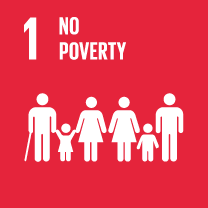
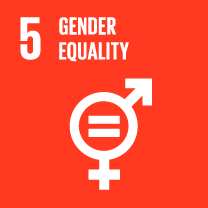
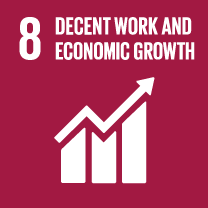
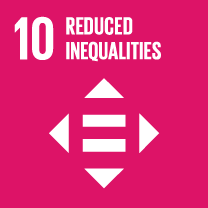
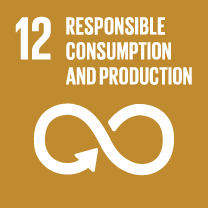

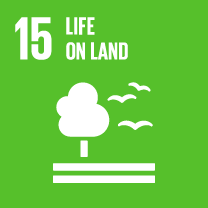
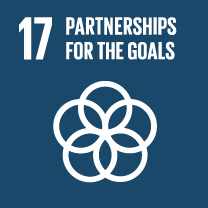
UNGC
Human Rights
Principle 1
Support and respect the protection of human rights
Principle 2
Not complicit in human rights abuses
Labour
Principle 3
Uphold freedom of association and recognition of right to collective bargaining
Principle 4
Elimination of forced and compulsory labour
Principle 5
Abolition of child labour
Principle 6
Elimination of discrimination in respect of employment and occupation
Environment
Principle 7
Precautionary approach to environmental challenges
Principle 8
Promote environmental responsibility
